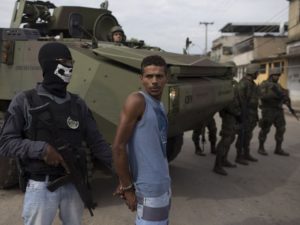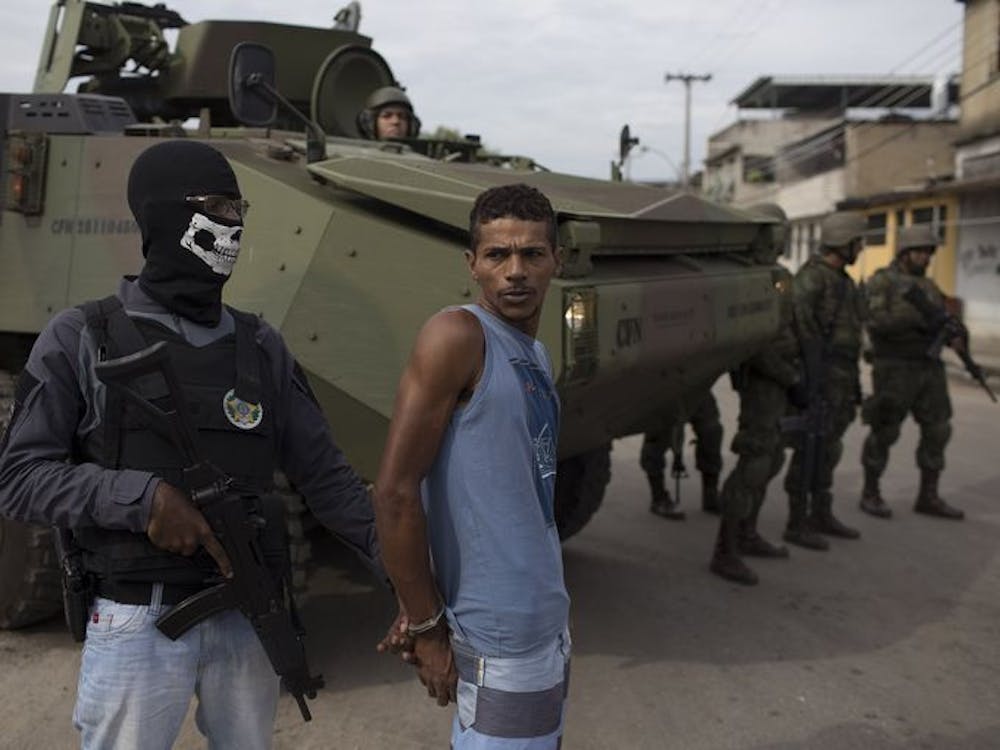By Cassie Sokoloff
Correspondent
Brazilian President Michel Temer ordered military control of Rio de Janeiro on Feb. 16, just days after the city’s famous Carnival celebration was tainted by an increase in crime and violence in the area, according to The Washington Post.

The mandate, which will expire in December, gives extensive control to the Brazilian military with the goal of reestablishing security. Command of police forces was given to General Walter Souza Barag Netto, who coordinated security in Rio at the 2016 Summer Olympic Games, according to The Washington Post.
Carnival, the city’s largest and most culturally identifying event, was the scene of muggings, assaults on tourists and drug trafficking. According to The Washington Post, violent crime in the city has reached a 15-year high.
At the signing ceremony, Temer reassured the public that the military and police will work together to reclaim the city, which has a population of 6.5 million.
“Together, the police and armed forces will combat and confront those who have kidnapped our cities,” Temer said, according to The New York Times. “Prison cells will no longer be thieves’ personal offices. Public squares will no longer be the reception halls for organized crime.”
There has not been federal military intervention in state affairs in Brazil since the nation ended its 21-year long military dictatorship in 1985. Brazil’s congress approved Temer’s orders on Feb. 20, according to ABC News.
The order comes at a time of economic crisis. The country has been in a deep economic recession in the last decade, and Rio’s police budget began to dwindle as the city went bankrupt. Areas that were previously heavily policed were overtaken by organized crime and gang violence, according to The Washington Post.
The public’s response to the military intervention has been mixed. Some believe military intervention would benefit the city, while other residents are unsure if their involvement will bring permanent change. Given the upcoming presidential elections, some are especially suspicious of the order being used as a means of increasing Temer’s reputation, according to BBC.
“I’m afraid of the police,” said Rita de Cassia Santos de Silva, a 53-year-old Rio native, according to The New York Times. “They go in and take whatever they want. I think people really only obey the army.”
Despite skepticism from the public, Temer aims to eradicate Rio’s position as one of the most dangerous cities in the world.
“We were not ready. There were mistakes in the first days and we reinforced the patrols,” Temer said, according to BBC. “The government will give tough and firm answers, taking all necessary measures to eradicate organized crime.”







